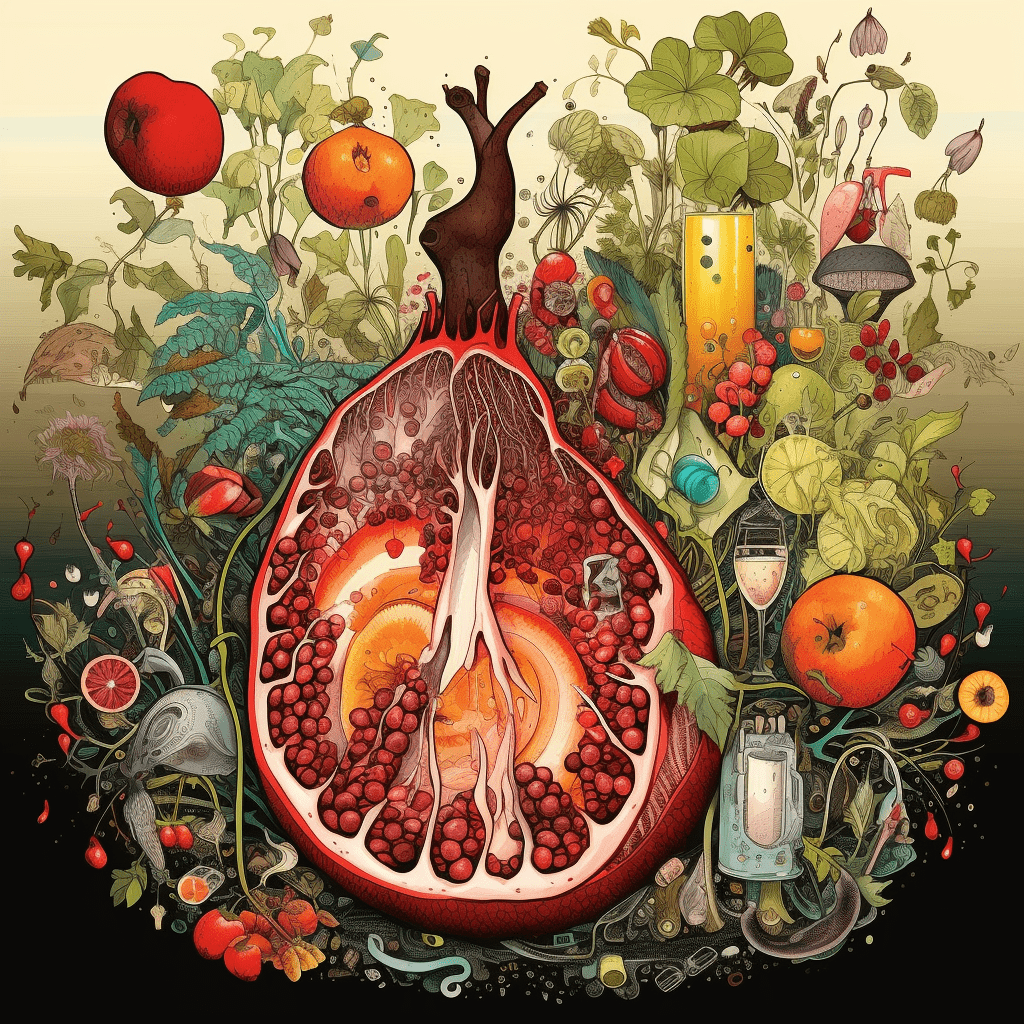How To lower Your Blood Pressure Naturally: A Comprehensive Guide
Understanding Blood Pressure: A Pivotal Insight
High blood pressure, or hypertension, globally impacts a considerable number of individuals, posing a substantial threat to heart health and overall well-being. Uncontrolled hypertension can lead to severe conditions like heart disease and stroke. Fortunately, effective and natural methods exist to lower blood pressure without relying solely on medication. This guide delves into these strategies, equipping you with knowledge and tools for managing blood pressure naturally.
Exploring Blood Pressure Dynamics
Before exploring methods to lower blood pressure, it’s crucial to comprehend what it is and how it’s measured. Blood pressure is the force exerted by blood against artery walls as it circulates. It’s measured by two numbers: systolic pressure over diastolic pressure. Systolic pressure reflects the force when the heart contracts, while diastolic pressure signifies the force during heart relaxation between beats.
Normal blood pressure is below 120/80 mm Hg. Elevated blood pressure ranges from 120 to 129 mm Hg (systolic) and below 80 mm Hg (diastolic). Stage 1 hypertension manifests with consistent readings of 130 to 139 mm Hg (systolic) and 80 to 89 mm Hg (diastolic).
Crucial Role of Lifestyle Adjustments
While medication effectively manages high blood pressure, lifestyle modifications are pivotal for sustaining healthy levels and reducing medication reliance. Adopting healthy habits not only lowers blood pressure but also empowers individuals to control their health. These modifications are especially beneficial for those with elevated blood pressure, preventing progression to severe hypertension.
Dr. Howard LeWine, chief editor of Harvard Men’s Health Watch, underscores lifestyle changes’ significance in blood pressure management. For individuals with elevated blood pressure or stage 1 hypertension, lifestyle modifications often suffice, potentially reversing hypertension without immediate reliance on medication.
1. Embracing Regular Exercise: The Heart’s Ally
Exercise stands out as a highly effective means of naturally lowering high blood pressure. Regular physical activity strengthens the heart, enhances cardiovascular health, and reduces artery pressure. Engaging in aerobic exercises like walking, jogging, swimming, or cycling significantly impacts blood pressure levels.
The American Heart Association recommends at least 150 minutes of moderate-intensity exercise weekly or 75 minutes of vigorous exercise for optimal cardiovascular health. However, any physical activity is beneficial, and even small changes like taking stairs, walking short distances, or participating in recreational sports contribute to an active lifestyle.
Exercise not only lowers blood pressure but also delivers additional health benefits, including weight management, improved mood, and increased energy levels. Before starting a new exercise regimen, especially with pre-existing health conditions, consulting a healthcare professional is crucial.
2. Cultivate a Wholesome and Nourishing Diet
Diet assumes a pivotal role in the orchestration of blood pressure levels. Embracing a balanced and nutritious eating plan can notably diminish blood pressure and enhance overall cardiovascular well-being. The Dietary Approaches to Stop Hypertension (DASH) diet emerges as a commendable recommendation, especially for those grappling with high blood pressure.
The DASH diet advocates for the consumption of fruits, vegetables, whole grains, lean proteins, nuts, seeds, and low-fat dairy products. Simultaneously, it prompts a reduction in sodium, saturated fats, processed foods, sugary beverages, and sweets. This dietary regimen is a treasure trove of nutrients like potassium, magnesium, and fiber, proven to positively influence blood pressure.
Further Enrich Your Plate: Dietary Allies for Blood Pressure
Incorporating specific foods into your meals can amplify the blood pressure-lowering effect. Foods rich in potassium, such as leafy greens, tomatoes, potatoes, bananas, avocados, and yogurt, have demonstrated a beneficial impact on blood pressure. Additionally, the inclusion of omega-3 fatty acids from fatty fish like salmon and tuna correlates with lower blood pressure levels.
3. Curb Sodium Intake: A Pivotal Stride
Mitigating sodium intake stands as a pivotal step in navigating high blood pressure. Elevated sodium levels in the diet trigger water retention and augmented blood volume, culminating in elevated blood pressure. The American Heart Association advocates capping sodium intake at less than 2,300 milligrams (mg) per day, with an ideal limit of 1,500 mg for individuals with hypertension or those at risk.
To curtail sodium consumption, conscientious choices in food selection are paramount. Opt for fresh, whole foods, and craft meals at home, leveraging herbs, spices, and other flavorings for taste enhancement without relying on excessive salt. Scrutinizing food labels, particularly those labeled “low sodium” or “no added salt,” aids in making informed choices.
4. Sustain a Healthy Weight: Balancing the Scale
Maintaining an optimal weight is indispensable for blood pressure management. Excessive body weight strains the cardiovascular system, escalating the risk of high blood pressure. Even a modest weight loss can yield substantial improvements in blood pressure readings.
For those grappling with excess weight, cultivating healthy eating habits and engaging in regular physical activity become allies in achieving a healthy weight. The synergy of a balanced diet and exercise not only facilitates weight loss but also contributes to holistic cardiovascular health.
Strategically Approach Weight Management: A Gradual Odyssey
Setting realistic goals and embracing gradual lifestyle changes are integral. Swift fixes like fad diets and extreme weight loss measures often prove unsustainable and may pose health risks. Aiming for a slow and steady weight loss of 1-2 pounds per week is deemed safe and more likely to endure in the long run.
5. Moderate Alcohol Intake: A Balancing Act
Excessive alcohol consumption has the potential to elevate blood pressure and foster hypertension. While moderate alcohol intake may offer some health benefits, unrestrained drinking can have adverse effects on blood pressure and overall health.
The American Heart Association prescribes moderation, advising no more than one drink per day for women and two drinks per day for men. It’s crucial to recognize that these guidelines cater to healthy individuals and might not universally apply. Those with specific health conditions or taking certain medications should consult their healthcare provider regarding alcohol consumption.
Navigating Alcohol Consumption: Seeking Support When Needed
For those wrestling with alcohol consumption challenges, seeking support from healthcare professionals or support groups proves beneficial. They extend guidance, resources, and strategies to assist in moderating or discontinuing alcohol consumption altogether.
6. Taming Tensions: Stress Management for Blood Pressure
Stress emerges as a formidable contributor to elevated blood pressure, orchestrating increased heart rates, constricted blood vessels, and heightened pressure. Incorporating effective stress management techniques becomes a potent tool in lowering blood pressure and enhancing overall well-being.
Various stress reduction techniques, like meditation, deep breathing exercises, and mindfulness practices, form a tapestry of remedies that not only lower blood pressure but also weave a fabric of relaxation. Engaging in pleasurable activities, such as music appreciation, reading, yoga, or communing with nature, adds hues to the canvas of stress alleviation.
7. Breaking Free: Liberation from Smoking
Smoking stands as a significant peril to blood pressure and a host of other health afflictions. The chemicals within tobacco smoke inflict damage on blood vessels, spark inflammation, and contribute to the genesis of hypertension.
Quitting smoking emerges as a monumental stride, impacting blood pressure reduction within weeks. As blood pressure levels recede, the looming risks of heart disease and stroke gradually dissipate.
Liberation Road: Breaking Free from Smoking Chains
For smokers seeking emancipation, connecting with healthcare professionals, support groups, or smoking cessation programs becomes a beacon of hope. They extend essential resources, support, and guidance, paving the way to overcome nicotine addiction and enhance cardiovascular health.
8. Exploring Herbal Allies: Natural Supplements for Blood Pressure
Beyond lifestyle adjustments, certain natural supplements hold promise in blood pressure reduction. However, caution prevails, necessitating consultation with a healthcare professional before embarking on any supplement journey due to potential interactions or adverse effects.
Garlic supplements, under scrutiny for their blood pressure-lowering potential, present findings suggesting a reduction in systolic and diastolic blood pressure. Hawthorn extract, a herbal remedy, also shows promise in taming blood pressure levels.
9. Harmony Within: Meditation and Relaxation Techniques
Engaging in relaxation techniques, encompassing meditation, deep breathing exercises, and progressive muscle relaxation, serves as a symphony that resonates with blood pressure. These practices cultivate a state of tranquility, diminishing stress and anxiety, subsequently leading to lower blood pressure.
Meditation, a focus on attention that silences the cacophony of stressful thoughts, coupled with deep breathing exercises activating the body’s relaxation response, becomes a powerful duet in the orchestration of reduced blood pressure.
Cultivating Calmness: Integration into Daily Routine
Incorporating these techniques into daily life becomes a ritual, bestowing a sense of calmness and aiding in the management of blood pressure levels. Devoting a few minutes each day or participating in classes and workshops dedicated to meditation and relaxation training offers a harmonious approach.
10. Savoring the Mediterranean Melody: A Heart-Healthy Diet
The Mediterranean diet, echoing the culinary traditions of Mediterranean-bordering countries, harmonizes with numerous health benefits, including blood pressure moderation. This gastronomic symphony highlights whole, minimally processed foods, an abundance of fruits and vegetables, lean proteins, whole grains, and healthy fats.
Rich in nutrients like potassium, magnesium, and omega-3 fatty acids, the Mediterranean diet orchestrates a melody that harmoniously lowers blood pressure. Simultaneously, it orchestrates a limit on sodium, added sugars, and unhealthy fats.
Savoring the Mediterranean Palette: Heart-Healthy Delights
Integrating Mediterranean-style meals into the diet becomes an enjoyable journey in blood pressure management. Experimenting with recipes featuring fresh produce, legumes, whole grains, fish, olive oil, and an array of herbs and spices creates a culinary masterpiece that is both delicious and heart-healthy.
11. Harnessing Potassium’s Power: Dietary Elevation
Potassium, a vital mineral in the blood pressure equilibrium, counteracts sodium’s effects, easing the tension on blood vessel walls. Including potassium-rich foods in the diet serves as a natural conduit to lower blood pressure.
Bananas, oranges, avocados, leafy greens, tomatoes, potatoes, yogurt, nuts, seeds, and beans constitute a palette of potassium-rich options. Infusing these foods into meals and snacks crafts a well-balanced diet, fostering optimal blood pressure levels.
12. Embracing Omega-3’s Symphony: Fatty Acids for Blood Pressure
Omega-3 fatty acids, the virtuosos of healthy fats, extend a melody of health benefits, including the potential to lower blood pressure. Found in fatty fish, walnuts, flaxseeds, and chia seeds, they compose a nutritional composition that harmonizes with lower blood pressure and overall cardiovascular health.
For those not inclined toward fish or bearing dietary restrictions, omega-3 supplements, like fish oil capsules or algae-derived alternatives, offer a convenient option. However, a prelude with a healthcare professional ensures a harmonious integration of these supplements.
13. Vibrant Elixir: Beetroot Juice for Blood Pressure
Beetroot juice emerges as a vibrant elixir garnering attention for its potential in blood pressure reduction. Abundant in nitrates, converted into nitric oxide within the body, it acts as a conduit to relax blood vessels, enhancing blood flow and reducing blood pressure.
Studies echo the cadence of beetroot juice, showcasing a significant reduction in blood pressure, especially among individuals with hypertension. Welcoming this nutrient-rich juice into the diet becomes a refreshing and flavorful support for maintaining healthy blood pressure levels.
14. Harmony in Motion: Yoga and Breathwork
Explore the realm of yoga and breath exercises, specifically pranayama, recognized for their affirmative influence on blood pressure. These practices weave together physical movements, stretches, and controlled breathing techniques, crafting an immersive experience aimed at promoting relaxation and alleviating stress.
Within the canvas of yoga, postures like savasana, forward bends, and gentle inversions act as conduits to pacify the nervous system and usher in a lowering of blood pressure. The rhythmic symphony of pranayama techniques, including alternate nostril breathing and deep abdominal breathing, orchestrates the body’s relaxation response, fostering a serene state of calmness.
Elevate Beyond: Integrating Yoga and Breathwork
Incorporating these practices into your routine unveils myriad benefits, extending beyond blood pressure management to encompass enhanced flexibility, balance, and mental well-being. Whether joining yoga classes or practicing at home through online resources or mobile applications, the possibilities are as expansive as the benefits.
15. Unveiling Serenity: Activities for Stress Reduction
Navigating stress reduction becomes pivotal in sustaining optimal blood pressure levels, with chronic stress serving as a potential catalyst for heightened blood pressure and increased heart disease risk.
Embark on stress-reducing activities, transformative endeavors that not only lower blood pressure but also nurture overall well-being. Discover activities that bring joy and facilitate relaxation, be it indulging in hobbies, communing with nature, savoring music, practicing mindfulness, or immersing in creative pursuits. Dedicate time to self-care, creating a haven for stress reduction, and witness the substantial impact on blood pressure levels and holistic health.
A Symphony of Wellness: Holistic Approaches
In conclusion, the journey to lower blood pressure naturally unfolds through a tapestry of lifestyle adjustments, dietary shifts, stress management, and holistic approaches. Embrace these strategies to seize command over your blood pressure, diminishing the risk of complications linked to hypertension.
It’s imperative to acknowledge that these natural methods may not universally apply or prove adequate in severe hypertension cases. Consultation with a healthcare professional becomes a compass, guiding you to the most fitting approach for your unique needs. They offer personalized guidance, monitor progress, and seamlessly integrate necessary medications or interventions into your treatment plan.
Empowerment in Choices: Managing Blood Pressure
Informed choices, the infusion of healthy habits into daily routines, and seeking professional support when required stand as pillars in effectively managing blood pressure and cultivating a heart-healthy lifestyle. Embark on the initial steps toward superior cardiovascular health today by implementing these natural methods to lower blood pressure.
Disclaimer: This article is for informational purposes only and should not replace professional medical advice. Consult with a healthcare professional before starting any new exercise or diet regimen.




